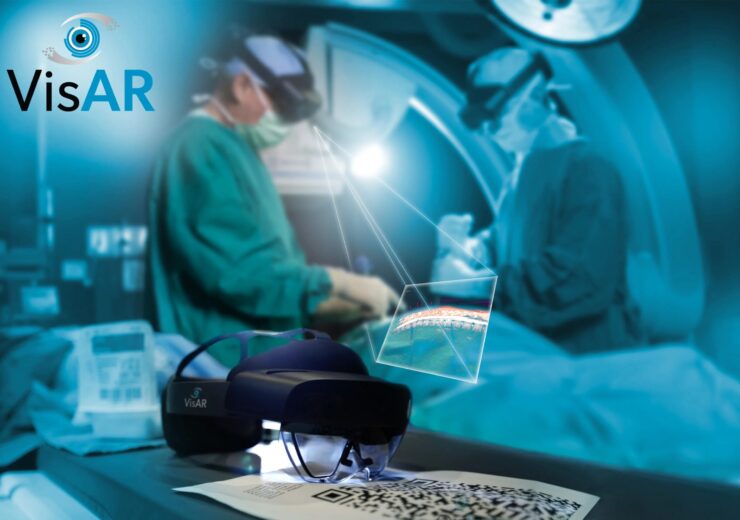During the procedure, Novarad used VisAR to biopsy an intraventricular tumour in the third ventricle, deep in the centre of the patient's brain at the MAC CDMX Hospital in Mexico

Doctors in Mexico have completed a cranial surgery using VisAR surgical navigation system. (Credit: Novarad Corporation)
Novarad, a medical imaging-focused healthcare technology company, has performed the first cranial surgery in Latin America using its VisAR augmented reality (AR) surgical navigation system.
VisAR shows the patient’s anatomy in three dimensions in real time. Using an attached code, the device facilitates accurate navigation of surgical instruments with optical tracking.
During the procedure, Novarad used VisAR to biopsy an intraventricular tumour in the third ventricle, deep in the centre of the patient’s brain at the MAC CDMX Hospital in Mexico.
The first-of-its-kind application of AR surgery in Latin America was conducted by a team of neurosurgeons, including Alberto Ramirez and Jose Francisco Cuellar, supported by Wendell Gibby from Novarad.
According to Novarad, surgeons can use this AR surgical navigation to overlay vital information onto the surgical field, offering accurate and precise delicate procedures.
VisAR is said to lower the risk of complications and helps with the best possible results by improving the situational awareness of a surgeons.
The technology aims to transform healthcare delivery by combining cutting-edge imaging software with an off-the-shelf Microsoft HoloLens.
Ramirez said: “After performing the first spine cases, we realised that the accuracy and safety with which we can place implants using VisAR is very good.
“After performing the cranial case, we found we could smoothly and confidently guide our craniotomy margins when entering the anatomical corridor for tumor reception. I think that in some way, the VisAR navigation is essential.
“Despite a slight increase in surgical time, we see such an improvement during surgery. We have a much better ability to see and understand the brain injury.”
The US Food and Drug Administration (FDA) approved VisAR as the first augmented reality device for preoperative planning five years ago. The device’s development started around seven years ago.
In 2022, it was cleared by the American health regulator for stereotactic navigation of the spine.
Currently, the surgical navigation system is available in Indonesia, the US, and Mexico.
